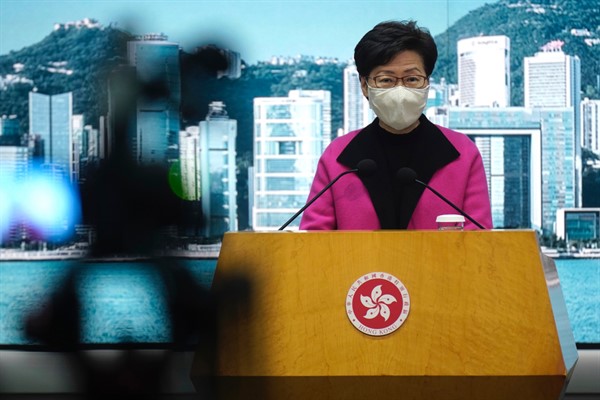Editor’s Note: Every Wednesday, WPR contributor Rachel Cheung and Assistant Editor Benjamin Wilhelm curate the week’s top news and expert analysis on China. Subscribers can adjust their newsletter settings to receive China Note by email every week.
When Hong Kong’s pro-democracy camp won the city’s local elections in a landslide in 2019, securing 17 of its 18 districts, their unprecedented victory was a slap in the face for the Hong Kong government, and for Beijing, whose puppets suffered a humiliating loss. But that victory was short-lived, as the authorities in Hong Kong are now making sure the opposition won’t be able to compete in another election.
This week, Hong Kong’s secretary for constitutional and mainland affairs, Erick Tsang, unveiled draft legislation that would require all district councilors and lawmakers to pledge an oath of allegiance to the Basic Law, Hong Kong’s de facto constitution. Politicians deemed disloyal would be disqualified and banned from contesting elections for five years, while those who violate the oaths would be prosecuted in court. The legislation includes a long “negative list” of offenses that would constitute a violation of that oath, such as advocating for Hong Kong’s independence, lobbying for so-called foreign interference and objecting to the government’s motions “indiscriminately.”

